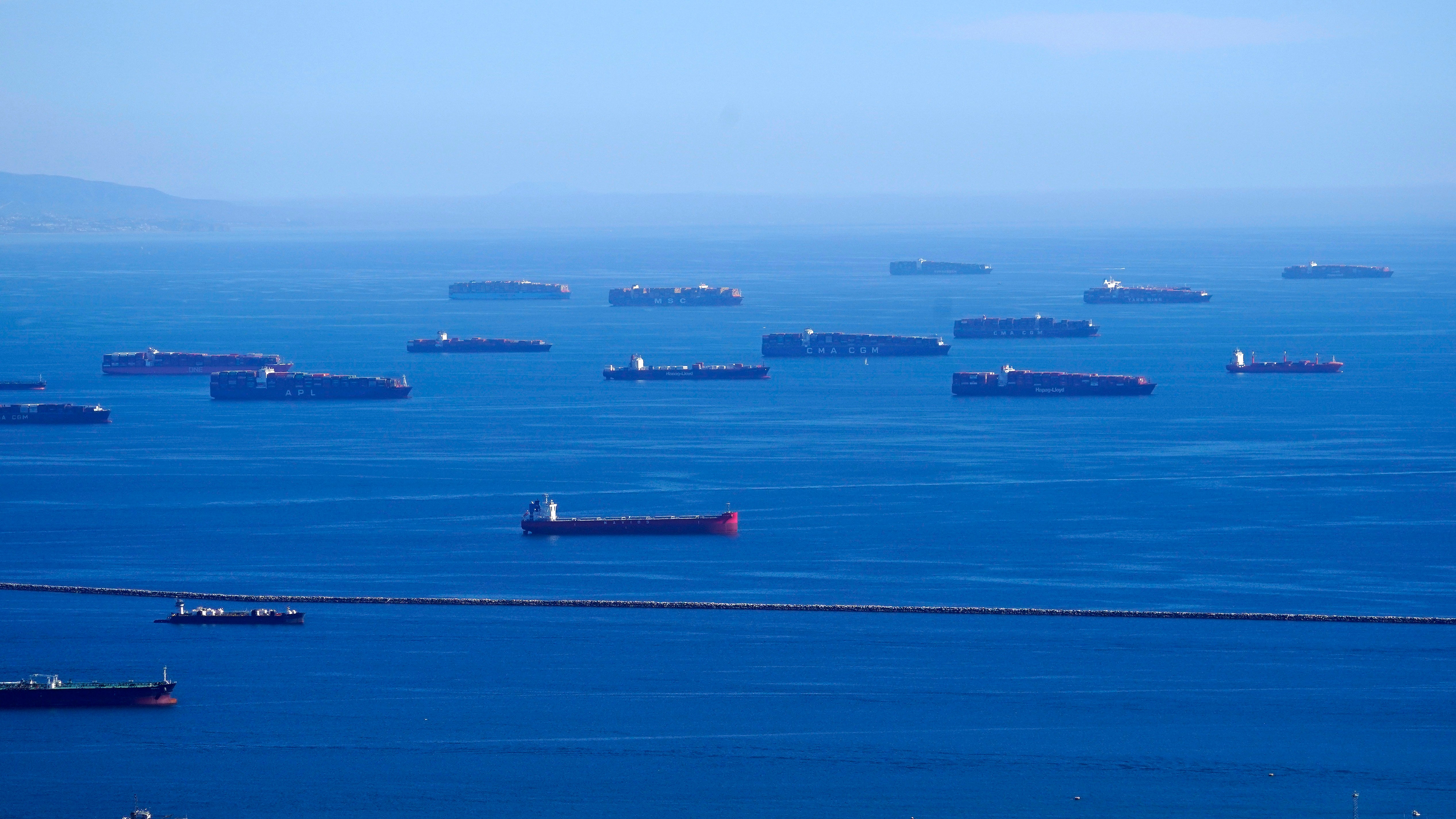Countries agree to slash shipping emissions but not enough to stay within warming limits
Maritime nations agreed Friday to slash emissions from the shipping industry to net zero by about 2050 in a deal that many experts and some nations say falls well short of what’s needed to curb warming to agreed temperature limits

Your support helps us to tell the story
From reproductive rights to climate change to Big Tech, The Independent is on the ground when the story is developing. Whether it's investigating the financials of Elon Musk's pro-Trump PAC or producing our latest documentary, 'The A Word', which shines a light on the American women fighting for reproductive rights, we know how important it is to parse out the facts from the messaging.
At such a critical moment in US history, we need reporters on the ground. Your donation allows us to keep sending journalists to speak to both sides of the story.
The Independent is trusted by Americans across the entire political spectrum. And unlike many other quality news outlets, we choose not to lock Americans out of our reporting and analysis with paywalls. We believe quality journalism should be available to everyone, paid for by those who can afford it.
Your support makes all the difference.Maritime nations agreed Friday to slash emissions from the shipping industry to net zero by about 2050 in a deal that some experts and nations say falls short of what's needed to curb warming to agreed temperature limits.
Negotiators at the meeting of the United Nations' International Maritime Organization in London, seen as key to curb global warming to 1.5 degrees Celsius (2.7 degrees Fahrenheit) since pre-industrial times, rubber-stamped a deal for shipping emissions to reach net zero “by or around” 2050.
The plan also calls for shipping emissions to be slashed by at least 20% but aiming for 30% by 2030 and at least 70% but working toward 80% by 2040 despite a push from Pacific nations for more ambitious targets. Experts calculate the industry must cut its emissions by 45% by 2030 and reach net zero by 2050 to keep on track with 1.5 C temperature goal.
Environmentalists and some nations pushing for more ambitious targets are unhappy with the deal, which doesn't set 2050 as a firm deadline for net zero emissions or keep in line with the warming limit set in the Paris agreement.
One analysis suggests both the less and more ambitious interim targets would see the shipping industry use up its carbon budget — a calculation of the amount of carbon dioxide various industries and countries can emit before global warming limits are breached — by early next decade.
“We do not have the time to wait for regulation or alternative fuels to catch up,” said Diane Gilpin, founder and CEO of Smart Green Shipping in a press statement Friday. "We need to move with urgency and work with what we have.”
The IMO's targets are revised every five years. The previous target was for the shipping industry to cut its emissions by at least half from 2008 to 2050.
But environmentalists say that other players can surpass the IMO's emissions plan.
“National and regional actors must take initiative to enact a more ambitious policy on shipping emissions, corporate first movers must launch green shipping corridors to accelerate the uptake of zero-carbon fuels,” said Jason Anderson from the ClimateWorks Foundation.
Shipping currently accounts for almost 3% of greenhouse gas emissions, according to the IMO. A European Parliament report warned that share could increase dramatically by 2050 if steps aren't taken to reduce the sector's reliance on fossil fuels.
___
Follow AP’s climate change coverage at https://apnews.com/hub/climate-and-environment
___
Associated Press climate and environmental coverage receives support from several private foundations. See more about AP’s climate initiative here. The AP is solely responsible for all content.